Uncategorized
-
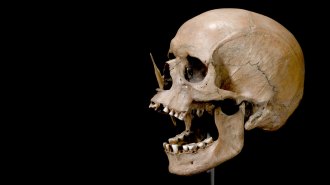 Genetics
GeneticsHow ancient herders rewrote northern Europeans’ genetic story
New DNA analyses show the extent of the Yamnaya people’s genetic reach starting 5,000 years ago and how it made descendants prone to diseases like MS.
By Bruce Bower -
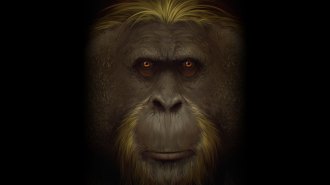 Paleontology
PaleontologyEarth’s largest ape went extinct 100,000 years earlier than once thought
Habitat changes drove the demise of Gigantopithecus blacki, a new study reports. The find could hold clues for similarly imperiled orangutans.
-
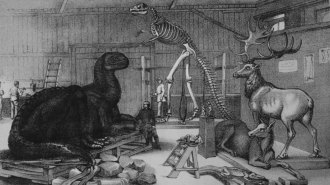 Paleontology
PaleontologyThe real culprit in a 19th century dinosaur whodunit is finally revealed
Contrary to the stories handed down among paleontologists, creationism wasn’t to blame for the destruction of Central Park’s dinosaurs.
By Freda Kreier -
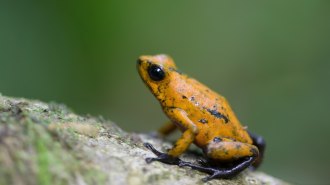 Life
LifeHere’s how poison dart frogs safely hoard toxins in their skin
A protein found in frog bodies may help the amphibians collect and transport toxins from their food to their skin for chemical defense.
-
 Physics
PhysicsHere’s the science behind the burbling sound of water being poured
The height of the pour and the thickness of the stream help determine the loudness of the falling water.
-

-

Bringing scientists’ stories out of the shadows
Editor in chief Nancy Shute spotlights scientist Emma Rotor's contributions to weapons research in World War II.
By Nancy Shute -
 Health & Medicine
Health & MedicineThe teen brain is especially susceptible to the harms of THC
Marijuana that’s higher in THC and concentrated cannabis products may pose even higher risks of addiction and psychosis.
-
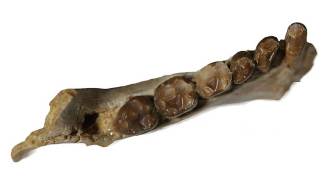 Anthropology
AnthropologyAncient primates’ unchipped teeth hint that they ate mostly fruit
Of more than 400 teeth collected, just 21 were chipped, suggesting that early primate diets were soft on their choppers.
-
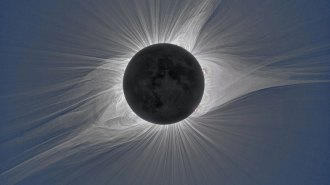 Space
SpaceWhy the 2024 total solar eclipse will be such a big deal
The sun will be very active during the next solar eclipse to cross North America, making it an excellent viewing and scientific opportunity.
-
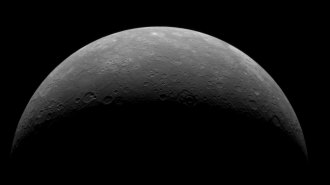 Planetary Science
Planetary ScienceSalt may have carved out Mercury’s terrains, including glacierlike features
Mercury may contain a planetwide cache of salt that has sculpted chaotic terrain and possibly even habitable niches.
By Shi En Kim -
 Physics
PhysicsHere’s how much fruit you can take from a display before it collapses
About 10 percent of the fruit in a tilted market display can be removed before it all crashes down, computer simulations show.